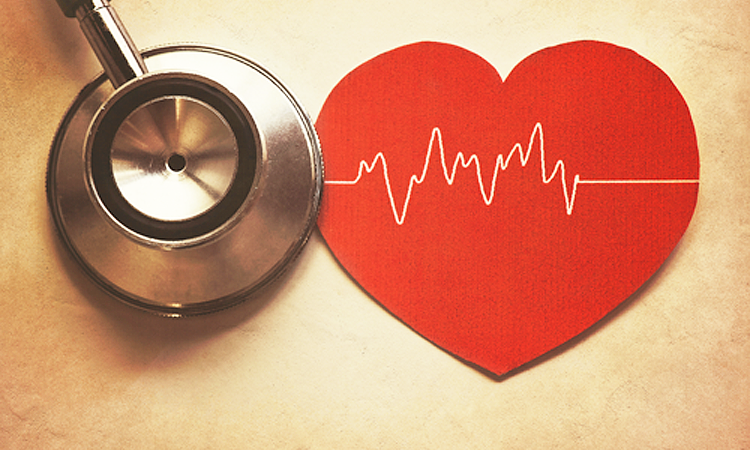“Coffee is my favorite part of my morning routine. The taste, the smell, everything about it relaxes me.”
-Rose Caiola
Moderation and timing are the keys to success
“Who’s addicted to caffeine? Not me”, you say in an offended tone.
In the United States, 73 percent of children and 87 percent of adults are regularly using caffeine, according to a 2015 study published in Human Psychopharmacology.
Over the years, caffeine has been abused and modified with sugars, food coloring and unpronounceable additives. Coffee is the most commonly ingested form of caffeine, but there is a whole line of beverages and products that ranges from being psychologically damaging to overwhelming with health benefits.
Yet, caffeine in itself is not bad. It’s the frequency, amounts and the dependencies people have to it that are most concerning. Many people need their coffee to get them functioning enough to start or continue their day. It takes a toll on your adrenal glands for someone who has already pushed their stress to the max.
Like many addictions, when caffeine is abused it can do us great harm. However, it’s properties are beneficial and can be healthful when used appropriately and with the proper adrenal support.
Caffeine is the world’s most popular drug
Caffeine is a methylxanthine compound that mainly causes neuro-hormonal stimulation and activation of the sympathetic nervous system. This results in an increase in blood catecholamines and cortisol that allows the body to adapt to stressors.
that mainly causes neuro-hormonal stimulation and activation of the sympathetic nervous system. This results in an increase in blood catecholamines and cortisol that allows the body to adapt to stressors.
In the heart, caffeine acts as an adenosine receptor antagonist, which begin reactions that mimic the effects of epinephrine. The secretion of epinephrine and norepinephrine increase the force and rate of heart contraction, thereby raising blood pressure and heart rate.
Caffeine has been used by many to enhance mood and energy, improve athletic performance, as a medicine – such as for headache relief, as a diuretic, and an antioxidant – but most commonly to counteract the effects of insufficient sleep. But like any effective drug, there are potential negative side effects. Let’s have a look at the actions of caffeine:
Cognitive and mental support
Studies of caffeine on cognitive and mental acuity show conflicting data. There are many studies finding acute caffeine use consistently improves psychomotor speed and vigilance, simple and choice reaction times, increased alertness, improved short-term recall, and lessened perceived fatigue. However, these studies measure cognitive abilities pre- and post-dose, which may show an exaggerated effect if the participant is experiencing a period of caffeine deprivation prior to receiving a single bolas dose. Some studies use non-habituated caffeine users to remedy this study flaw and still experience similar, positive performance enhancing effects from caffeine.
Other studies found no significant impact on reaction time, vigilance or decision-making and may in fact cause long-term negative impact in motor skills, memory and learning with frequent use. Overall, caffeine use as a cognitive stimulant may be beneficial if not abused, or used as a replacement for insufficient sleep.
Mood Stimulant
Caffeine at a dose of 300 milligrams (mg) has been shown to increase anxiety and tension, especially when paired with stressful tasks. Patients with panic disorders have an increased sensitivity to low doses of caffeine, showing signs of anxiety, nervousness, fear, and tremors. Hallucinatory experiences are reported with greater than 300 mg of caffeine, approximately seven cups of coffee per day, which may be due to the physiological effects of cortisol release during stressful periods.
Cardiovascular Disease
 Caffeine increases acute risk for atrial fibrillation – irregular heart contraction – and myocardial infarction – heart attacks – in those with existing heart conditions. These cases are most frequently seen with high caffeine doses and in combination with other stimulants, as found in some energy drinks.
Caffeine increases acute risk for atrial fibrillation – irregular heart contraction – and myocardial infarction – heart attacks – in those with existing heart conditions. These cases are most frequently seen with high caffeine doses and in combination with other stimulants, as found in some energy drinks.
Tachycardia – fast heart rate – and arrhythmia – irregular heart rate – symptoms typically arise with greater than 200 mg of caffeine ingestion, and have been shown to adversely affect arterial stiffness.
Although studies of chronic caffeine use have reported no overall increase in atrial fibrillation (AF) risk, acute caffeine consumption increases blood renin, epinephrine and norepinephrine levels, blood pressure, heart rate and ECG markers for AF. However, coffee and tea also contain important antioxidant sources that can decrease inflammation and heart tissue dysfunction, and can be protective against AF.
Exercise and fat loss support
Caffeine supplementation can aid in improving exercise performance by increasing muscle endurance, glycogen resynthesis – a form of energy – and help facilitate fat loss.
The adrenal hormones released with caffeine consumption allow free fatty acids to be used by the muscle during exercise and spare glycogen use, which improves physical performance.
Exercise in itself is an anti-diabetic medicine. It increases exercise-induced insulin sensitivity responses. Despite pure caffeine supplementation, which enhances exercise performance, it may reduce the exercise-induced blood glucose regulation.
Sleep
 Most people abuse caffeine for its stimulating effect in the early mornings to counter lack of sleep. Others use it mid-day to defeat food comas, boredom or exhaustion.
Most people abuse caffeine for its stimulating effect in the early mornings to counter lack of sleep. Others use it mid-day to defeat food comas, boredom or exhaustion.
However, when stimulants are taken too late in the day, especially two hours before bed, sleep quantity and quality is severely affected.
Even a study with a group of female athletes who took caffeine 45 minutes prior to intense exercise for 90 minutes in the evening experienced sleep latency and impaired sleep quality.
Cancer protection
Many studies have found supporting evidence that tea is a powerful anti-cancer agent, but what about isolated caffeine?
Clinical findings demonstrate various anti-cancer properties of caffeine and caffeic acid, both estrogen and non-estrogen dominant, which may sensitize tumor cells to Tamoxifen treatment and reduce breast cancer growth.
Kidney function
Acute caffeine ingestion can increase urine volume and kidney function. This prompts concerns for fluid balance, especially during exercise and sporting events. However, with adequate hydration before exercise, these concerns are unwarranted.
Although there is an increase in urine and calcium excretion, caffeine-containing beverages have actually shown to lower the risk of kidney stones. People with chronic renal conditions should carefully monitor their caffeine consumption to avoid excessive burden on their kidneys.
Reduced iron absorption
Data shows that excess caffeine decreases the absorption of non-heme iron – iron from non-meat sources – and therefore, caution should be taken in people with iron-deficient anemia, especially vegans and vegetarians. However, caffeine seems to affect iron status only in those with a current risk of anemia.
Pregnancy, children and caffeine
Prenatal coffee ingestion was negatively associated with the Behavior Rating Scale of the infant. Caution should be taken by men who heavy consume energy beverages and food supplements to avoid the potentially deleterious effect of caffeine on sperm quality. Moderate consumption of caffeine appears to be safe to male reproductive health.
Research suggests an association between coffee and tea consumption in children younger than two years old with type 1 diabetes and a three-fold risk of severe kindergarten obesity. Childhood and adolescent caffeine intake increases the risk of depression, sleep difficulties, becoming overweight, substance use, and other disturbing physiological, behavioral and psychological effects.
So, is caffeine healthy? Yes and no, depending on a number of factors – the most important being the amount and frequency that you ingest. There are many ways to reduce your caffeine addiction, minimize the effects of withdrawal and improve your health starting today.
This article originally appeared on DrAlisonChen.com and is republished here with permission.



